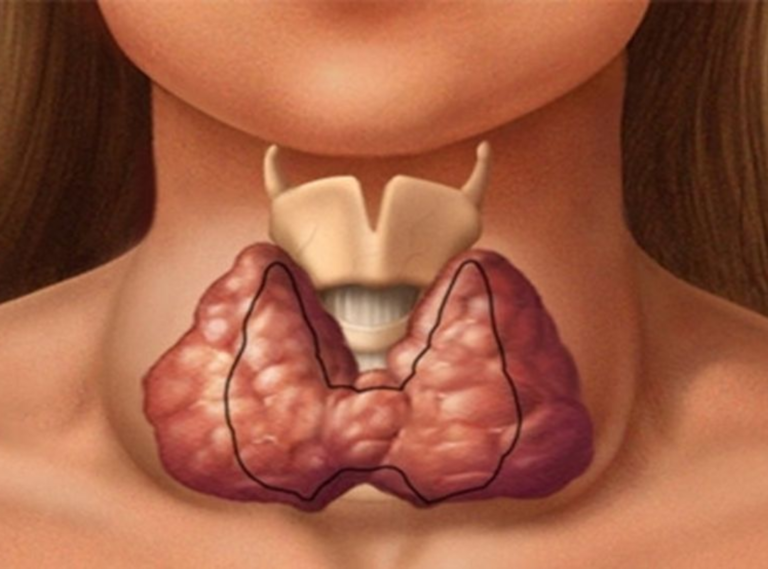thyroid
Ayurveda for Thyroid Harmony
Ayurveda offers a natural and holistic approach to maintaining thyroid health by addressing imbalances at their root cause. The thyroid, governed by the interplay of the Pitta, Vata, and Kapha doshas, plays a vital role in metabolism and overall wellness.
An imbalance in thyroid function can lead to conditions like hypothyroidism (underactive thyroid) or hyperthyroidism (overactive thyroid). These imbalances often result in symptoms such as fatigue, weight fluctuations, and mood swings. In more severe cases, they can affect heart rate, body temperature regulation, and overall energy levels.
Ayurveda takes a holistic approach to health by focusing on balancing the body’s energies (doshas), improving digestion, and supporting overall well-being. This system of healing emphasizes the importance of restoring harmony within the body to address imbalances.
By strengthening digestion and metabolism, Ayurveda helps the body better absorb nutrients and eliminate toxins. Moreover, Ayurveda incorporates stress management and lifestyle modifications to promote lasting wellness. Through these practices, the body regains its natural balance, leading to improved vitality and long-term health.
Symptoms:
Its imbalance can lead to symptoms such as unexplained weight changes, fatigue, mood swings, hair loss, dry skin, irregular menstrual cycles, and sensitivity to cold or heat. Ayurveda views these symptoms as a result of dosha imbalances, offering personalized remedies to address the root cause.
Underactive Thyroid
- Weight Gain: Unexplained increase in body weight.
- Dry Skin and Hair: Brittle hair and rough, flaky skin.
- Depression or Mood Changes: Feelings of sadness, sluggishness, or low energy.
- Cold Sensitivity: Feeling unusually cold, even in warm environments.
- Swelling: Puffiness in the face or swelling at the neck (goiter).
Overactive Thyroid
- Weight Loss: Sudden and unexplained reduction in weight despite regular eating.
- Heat Sensitivity: Feeling excessively warm or sweating excessively.
- Rapid Heartbeat: Palpitations or a racing pulse.
- Nervousness or Anxiety: Feeling restless, irritable, or jittery.
- Increased Appetite: Feeling hungry more often than usual.
- Sleep Disturbances: Difficulty falling or staying asleep



Treatments:
Ayurvedic treatments for thyroid imbalances focus on restoring harmony through a holistic approach. This includes herbal remedies like Ashwagandha and Kanchanar Guggulu, detoxification therapies such as Panchakarma, and dietary adjustments tailored to balance the doshas.
1.Herbal Remedies
Ayurvedic herbs like Ashwagandha, Kanchanar, and Guggulu are commonly used to support thyroid function and improve hormone production. Ashwagandha, known for its adaptogenic properties, helps balance stress levels, which is essential for thyroid health.
2.Dietary Adjustments
A diet rich in nourishing, easily digestible foods helps balance metabolism and promote overall health. Including whole grains, fresh vegetables, and fruits supports digestion and provides essential nutrients. Additionally, healthy fats like ghee and coconut oil nourish the body and enhance nutrient absorption.
3.Detoxification
Panchakarma treatments eliminate toxins, promoting balance and rejuvenation. These therapies include various techniques such as oil massages, steam baths, and herbal enemas, which help cleanse the body at a deep level. By removing accumulated waste and toxins, Panchakarma restores the body’s natural rhythm and vitality.
4.Lifestyle Modifications
Stress management through meditation, yoga, and pranayama can significantly improve overall well-being. Meditation helps calm the mind, reduce anxiety, and foster mental clarity. Yoga, with its combination of physical postures and breath control, enhances flexibility, strengthens the body, and promotes relaxation.
5.Oil Therapies
Abhyanga (massage) and Shirodhara (oil therapy) help restore hormonal harmony and reduce stress. Abhyanga involves the application of warm, medicated oils to the body through rhythmic strokes, which improve circulation, nourish the skin, and promote deep relaxation.
Conclusion
Ayurveda offers a natural and comprehensive approach to managing health by addressing the root causes of imbalances in the body. This ancient system of healing recognizes the interconnectedness of body, mind, and spirit, focusing on restoring balance and promoting overall wellness. Through a combination of herbal remedies, personalized diets, detoxification, lifestyle adjustments, and stress management, Ayurveda supports the body’s innate ability to heal and thrive. By customizing treatments to individual needs, Ayurveda enhances vitality and strengthens the immune system. Furthermore, Ayurveda emphasizes prevention, helping individuals maintain long-term health and harmony. This holistic approach not only addresses current issues but also fosters lasting well-being.
